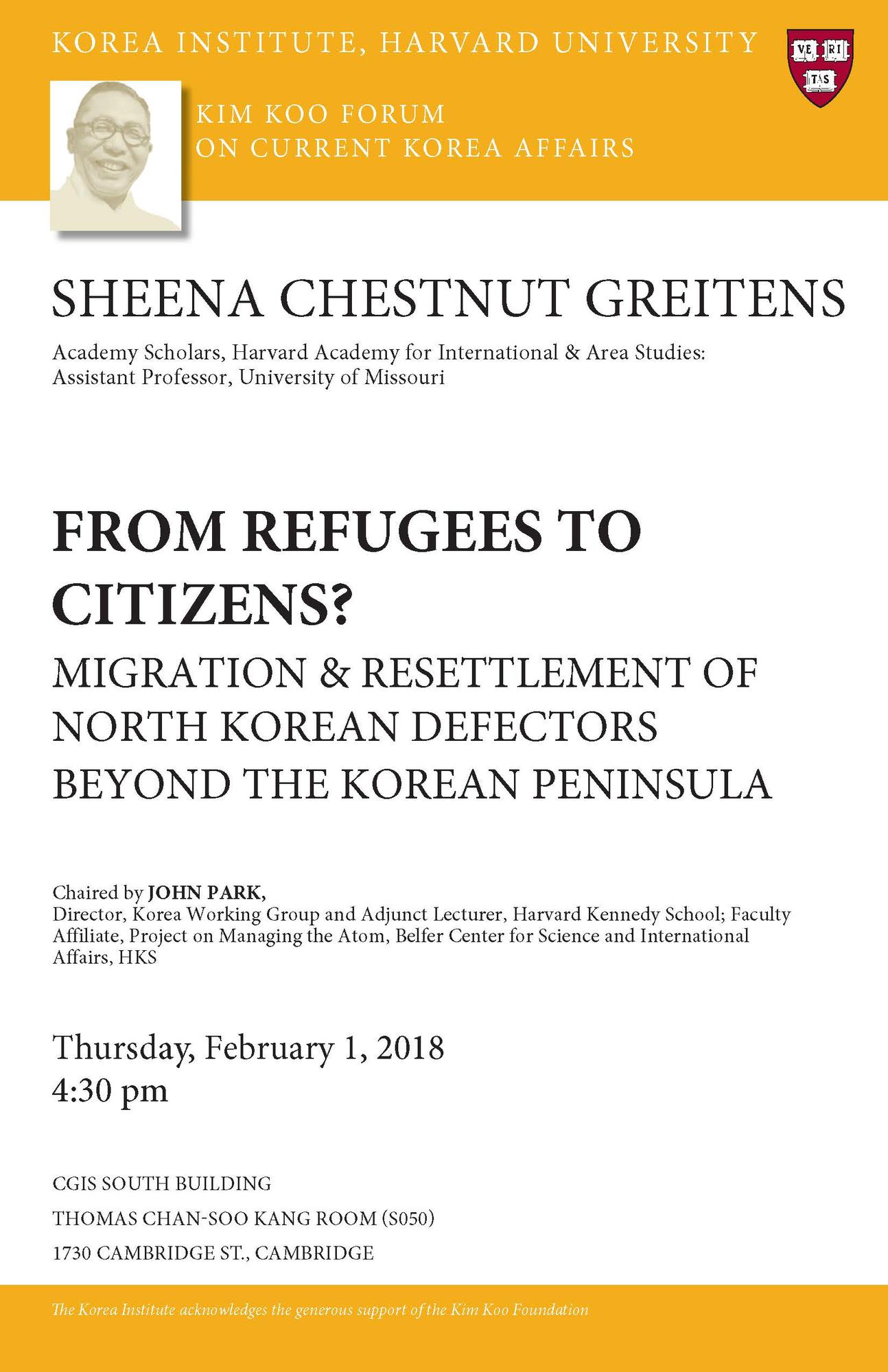Date:
Thursday, February 1, 2018, 4:30pm to 6:00pm
Location:
Thomas Chan-Soo Kang Room (S050), CGIS South Building, 1730 Cambridge Street

Sheena Chestnut Greitens
Academy Scholars, Harvard Academy for International & Area Studies; Assistant Professor, University of
Academy Scholars, Harvard Academy for International & Area Studies; Assistant Professor, University of
Missouri
Sheena Chestnut Greitens is an Assistant Professor in the Department of Political Science at the University
Sheena Chestnut Greitens is an Assistant Professor in the Department of Political Science at the University
of Missouri, and co-director of the university’s Institute for Korean Studies. She is also a non-resident senior
fellow at the Center for East Asian Policy Studies at the Brookings Institution and an associate in research
at the Fairbank Center for Chinese Studies at Harvard University. Dr. Greitens holds a Ph.D from Harvard
University; an M.Phil from Oxford University, where she studied as a Marshall Scholar; and a B.A. from
Stanford University.
Chaired by John Park, Director, Korea Working Group and Adjunct Lecturer, Harvard Kennedy School;
Faculty Affiliate, Project on Managing the Atom, Belfer Center for Science and International Affairs, HKS
Abstract:
Most North Korean refugees and defectors live in South Korea. In the past decade, however, a growing
Most North Korean refugees and defectors live in South Korea. In the past decade, however, a growing
number have sought to move beyond the Korean peninsula, resettling instead in North America, Europe,
and other locations around the world. This presentation examines the factors that have contributed to the
emergence of this new, global North Korean diaspora, arguing that contestation over conceptions of
citizenship at both the level of the individual and the level of government policy have shaped the migration
and resettlement of North Korean defectors and refugees. These changes in resettlement patterns, in turn,
have significant implications not only for the human security of individuals and families from North Korea,
but for global policy toward the DPRK.
The Korea Institute acknowledges the generous support of the Kim Koo Foundation.






